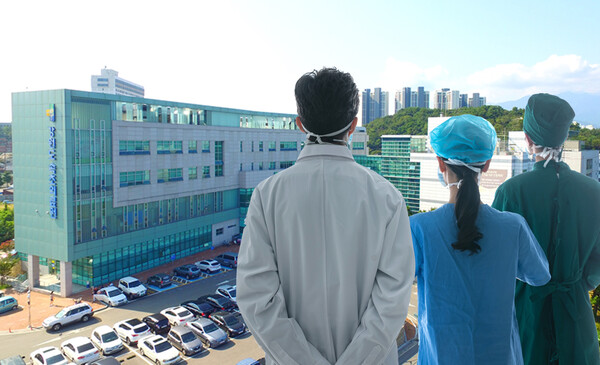Sokcho Medical Center, which repeatedly reduced its emergency room operation due to a shortage of doctors, has been an example that shows the reality of essential medical care.
Especially so after one of the doctors who left the emergency department of the medical institution along the eastern coast reportedly resigned after being criticized for failing to meet the "golden time” for treatment regarding the death of an army recruit during a pack drill.

Last Friday, Sokcho Medical Center announced that it would operate its emergency room at a reduced scale after two of the five specialists in its emergency room offered to resign, causing a workforce shortage.
One of the two resigned doctors provided first aid to the trainee, who collapsed on May 23 at an Army infantry division’s boot camp in Inje, Gangwon Province, and was taken to Sokcho Medical Center. The doctor judged the trainee needed to be transferred to a larger hospital and sent him to GangNeung Asan Hospital.
However, when the transferred army recruit died, the doctor had a police reference check. He was also criticized for missing the "golden time" by failing to respond quickly.
When the blame for the trainee's death was shifted to the doctor who provided first aid, doctors on the frontlines of emergency care expressed self-doubt.
Dr. Yeo Han-sol, chief of the emergency department at Sokcho Medical Center, took to Facebook on May 29 to explain why it took nearly three hours to transfer the trainee, stressing that the medical staff did their best at the scene.
"It took five minutes for an interview, one hour for lab (blood test), result check, and intermediate first aid, 20-30 minutes for brain, chest, and abdomen CT scan and reading, 10-20 minutes for arrangement (assigning the patient to receive immediate treatment after transfer), 30-40 minutes for waiting for a private ambulance, and 50 minutes to transport the patient from Sokcho Medical Center to GangNeung Asan Hospital," Yeo said. “All this takes two hours and 50 minutes at the shortest.”
The trainee who collapsed during military drills arrived at Sokcho Medical Center at around 6:50 p.m., and it was around 9:40 p.m. when the ambulance ran 68 kilometers (to GangNeung Asan Hospital), he said.
“However, some people pointed out that the golden time was missed in the urgent situation," Yeo added.
Yeo criticized the public opinion that blames doctors for missing the golden time despite the best measures taken by medical staff.
"If they were to be questioned by the police for missing the golden time and treated as if they did something wrong, they shouldn't even accept patients," Yeo said, "Why should emergency doctors take all the blame when they are treated like this?"
The ER chief at Sokcho Medical Center continued, "The incident is not about essential medical care in rural areas but about a squadron leader abusing a recruit to death. Why do they blame doctors who did the best they could, after leading a trainee to death?"

